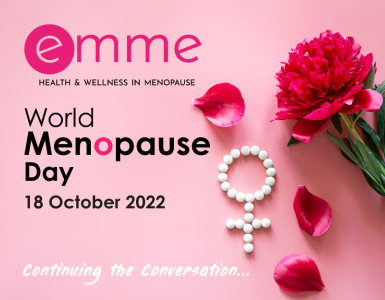As you go through the menopause, you might notice that your personal relationships start to suffer
Have you noticed that there are more tension and conflict between you and your spouse, children, and even your colleagues? If so, you are not alone – and there is a scientific explanation for the problem.
Dr Sheryl Ross is an OB/GYN at Providence Saint John’s Health Center in Santa Monica, California.
She states, “Oestrogen levels can fluctuate unpredictably, which can cause dramatic emotional highs and lows. Mood swings, depression, anxiety, anger, rage and crying fits are normal and very common.”
Does this sound familiar?
Dr Ross explains that many families are affected by the hormonal mood swings associated with peri-menopause and menopause. “Those whom you love and who love you the most — your children and spouse — are often blindsided by this normal biological event that affects all women.”
Anger, depression, and anxiety are all common symptoms of the menopause
This is even in women who have never experienced these issues in the past. As a result, their loved ones can feel frightened, confused, and worried by emotional outbursts that are out of character.
In addition to mood swings, many women experience the following:
Most of these things are not very nice, and so most women have been taught to dread and fear the menopause. However, we have some ideas for how you can make the best of the situation, embrace the positives, and protect your most important relationships.
Here are 5 things you can do to improve your relationships during menopause
It is shocking that even today, in 2020, women are made to feel like menopause is a taboo topic. This sense of secrecy can make things worse in your personal life, as your loved ones might have no idea what is going on for you. Speak openly and honestly with your children, partner, and friends to let them know that you are struggling with menopausal mood swings.You’ll be amazed at how their new knowledge will change the dynamic, leading to more compassion and fewer arguments and hurt feelings. You might find that female friends and family are more able to relate and empathise than the men in your life. Consider sending them some links to resources, or even buying them a book about the symptoms of menopause so that they have more understanding.
Numerous studies show that the worst symptoms of menopause can be eased by regular exercise. Not only does getting active increase your serotonin and dopamine, but it can also reduce the effects of hot flushes.
We recommend that you get your whole family involved in exercise so that you have a common ground and a new hobby to bond over. It’s a win/win situation that will improve everyone’s health. Playing a game of football in the park, going for a long walk in a wooded area, or taking an online yoga class together – all of these things will boost your mood, level out your emotions, and give the family a change to reconnect and have a great time together.
You’re probably used to running around and taking care of everyone else, but the menopause forces you to slow down and have some compassion for yourself. Try to stop the negative self-talk that comes with anxiety and hormonal fluctuations by engaging in self-care and speaking with a counsellor.
The mood swings and emotional upset of peri-menopausetend to last between 1 – 5 years. While you are in the middle of it, this can seem like a dreadfully long time, but always remember that this difficult time will pass. Before long, you will be back to feeling like your old self. If this seems impossible, speak to your GP and consider taking a hormone replacement therapy (HRT) regime.
Sure, some women glide through menopause with no adverse symptoms (or at least they appear to do so from the outside), but they are the outliers. If you are struggling with ‘the change,’ remember that you are certainly not alone. Every woman goes through this challenging time, and many have good advice to share on the topic.
Consider joining a support group on Facebook or Reddit so that you can share experiences and emotions with women who know what you’re going through. You might find that venting will prevent from taking out your frustrations on your family. It can be incredibly valuable to see other women voicing some of the same concerns, worries, and problems that you have been dealing with on your own. You might find that it improves your mood and allows you to speak more openly with your partner and family.
The creeping dread and self-doubt of anxiety can really wreak havoc on your family life, causing you to pick fights, rehash old issues, and make mountains out of molehills. There are plenty of resources out there for dealing with anxiety, but we recommend meditation and gentle yoga for getting out of your head. When everything seems at its worst, remind yourself of the positives in your life – your family, friends, career, pets, hobbies, and health.
For most women, going through the ‘change’ is a time of ups and downs, but it does pass. Soon, you will be over the worst of the hormonal fluctuations and can revel in your wisdom, hobbies, career, and family life as an older, more empowered woman.
What has the peri menopause or menopause been like for you? Has it affected your relationship? We would love to hear from you at [email protected] – leave a comment, or send us a message.
















